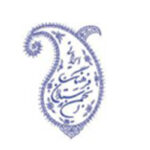Message from the Board of Trustees of Huqúqu’lláh to the National Convention

Donna Seyed Mahmoud gave a presentation on behalf of the Board of Trustees at the National Convention in late April in Toronto.
Photo: Louis Brunet
From the Board of Trustees of Huqúqu’lláh in Canada to the delegates of the National Convention, 24 April 2014:
The Board of Trustees of Huqúqu’lláh in Canada thanks the National Spiritual Assembly for the opportunity and privilege of once again writing to those assembled for the National Convention. The hope is to advance understanding of the spiritual and practical aspects of the law of the Right of God – “a deed that draws forth heavenly blessings, serves as a means of purifying the earthly possessions of the devoted friends, and promotes the international activities of the people of Baha.”1 Each of us, as true-hearted followers of the Faith, has the responsibility to “apply the principles of the law to the specific details of his or her own condition.”2
Bahá’u’lláh “passed forty years of His life in prison and exile in order that He might upraise the banner of the oneness of the world of men” and “proclaimed to the world the solidarity of nations and the oneness of humanity.”3 The peoples of the planet are a family unit.
‘Abdu’l-Bahá makes clear that, unless those family members in comfort are “senseless, atrophied, inhospitable, [and] unkind,”4 the current economic extremes and growing gap between the ‘haves and have nots’ – particularly in the west – would not exist. Such extremes make it “impossible for man to be happy and impossible for him to win the good pleasure of God”5 because they are “contrary to justice, to humanity, to equity. . . [and] the opposite to what causes divine satisfaction.”6 ‘Abdu’l-Bahá indicates such “utter indifference in the human family is due to lack of control, to lack of a working law, to lack of kindness in its midst.”7
The “supreme need of humanity is cooperation and reciprocity.”8 These attitudes are basic principles upon which Huqúqu’lláh is based and without them, “the individual member of human society remains self-centred, uninspired by altruistic purposes, limited and solitary in development like the animal and plant organisms of the lower kingdom.”9 Divine religion is “intended to be the means of true human cooperation. . . [and is] united in the purpose of making humanity one family.”10 “His Holiness Bahá’u’lláh has given instructions regarding every one of the questions confronting humanity. . . to every one of the problems with which man struggles”11 including the age old issue of poverty. Bahá’u’lláh’s message is a call to justice.
“All the world hath belonged and will always belong to God.”12 God is the Creator, the Self Sufficient, and the All Powerful. Although He could bring anything He desired into being, He has provided His followers with the opportunity to dutifully present unto Him His Right as “a token of His grace”.13
Central to the Bahá’í teachings is the knowledge that any future world civilization must achieve “a dynamic coherence between the material and spiritual requirements of life.”14 In its 2010 Ridván message to the Bahá’ís of the world, the Universal House of Justice states: “it seems appropriate that the friends everywhere would reflect on the nature of the contributions which their growing, vibrant communities will make to the material and spiritual progress of society.”15 To do so without considering the role of the Right of God would be incomplete since, more than any other spiritual obligation, the Right of God demonstrates the seamless nature of material and spiritual reality. It is a tangible way to demonstrate one’s belief in the brotherhood and oneness of humanity and to promote justice. “Motivated by a genuine concern for the welfare of others which derives from the love of Bahá’u’lláh,”16 one voluntarily fulfils the sacred and heavenly injunction of Huqúqu’lláh and promotes the common good. It is a benevolent deed offered in faithfulness to the Covenant – a response to the breaths of the Holy Spirit. Without this influence, “loving co-operation and reciprocity and the source of real kindness and unselfish devotion. . . is impossible. . .when human brotherhood is founded upon the Holy Spirit, it is eternal, changeless, unlimited.”17
“At the very core of the aims of the Faith are the establishment of justice and unity in the world, the removal of prejudice and enmity from among all people, the awakening of compassion and understanding in the hearts of all men and women, and the raising of all souls to a new level of spirituality and behaviour through the vitalizing influence of divine Revelation. The course set forth by Bahá’u’lláh for the attainment of these aims is the double task of simultaneously building an ideal society and perfecting the behaviour of individuals.”18
God has made provision for all. “God is kind to all. The good pleasure of God consists in the welfare of all the individual members of mankind.”19 Huqúqu’lláh will be one of the instruments to bring this God-pleasing outcome into fruition by helping man reach “perfection through good deeds, voluntarily performed, not through good deeds the doing of which was forced upon him. . .sharing is a personally chosen righteous act . . .[and] voluntary sharing, the freely-chosen expending of one’s substance, leadeth to society’s comfort and peace. It lighteth up the world; it bestoweth honour upon humankind.”20
“As the age old promise of a world animated by principles of justice slowly takes on the character of a realistic goal, meeting the needs of the soul and those of society will increasingly be seen as reciprocal aspects of a mature spiritual life.”21 For the dual and reciprocal transformation of the individual and society, Bahá’u’lláh has “not only revealed laws, principles and truths attuned to the needs of this age, but has established the very nucleus and pattern of those institutions which are to evolve into the structure of the divinely purposed world society.”22 Huqúqu’lláh is one of those institutions. Created for charitable and benevolent purposes, the Right of God will “give rise to a transformation of society far beyond our present capacity to comprehend.”23
May all of us and the generations to come, individually and collectively, be enabled to partake of the limitless “grace, abundance and of all good”24 associated with the weighty ordinance of Huqúqu’lláh so that it will “find expression in the lives of the servants of God in such wise that the sweet savours thereof will shed fragrance upon all regions.”25
With warmest and loving regards,
The Board of Trustees of Huqúqu’lláh in Canada
1 & 2 Huqúqu’lláh – The Right of God, April 2007, Amended August 2009, #93 & # 95 respectively
3 ‘Abdu’l-Bahá, The Promulgation of Universal Peace, second edition, 1982, p. 36
4, 5, 7, 11 & 19 ‘Abdu’l-Bahá, Foundations of World Unity, p. 38-41
6 ‘Abdu’l-Bahá, Bahá’í World Faith, p. 280-1
8, 9 & 10 ‘Abdu’l-Bahá, The Promulgation of Universal Peace, p. 338
12 & 13 Huqúqu’lláh – The Right of God, April 2007, Amended August 2009, #5 & #85 respectively
14 & 15 Universal House of Justice, Ridvan, 2010, p. 9-10
16 International Board of Trustees of Huqúqu’lláh, International Newsletter, issue 73, p.14
17 ‘Abdu’l-Bahá, Foundations of World Unity, p. 80
18 & 22 Universal House of Justice, 1996 July 2 letter to an individual re Criticism of Institutions
20 ‘Abdu’l-Bahá, Selections from the Writings of ‘Abdu’l-Baha, p. 115
21 Universal House of Justice, 2002 April letter To the World’s Religious Leaders, para. 21
23, 24 & 25 Huqúqu’lláh – The Right of God, April 2007, Amended August 2009, #98, #13, & #23 respectively
Category: Institutions, Right of God








